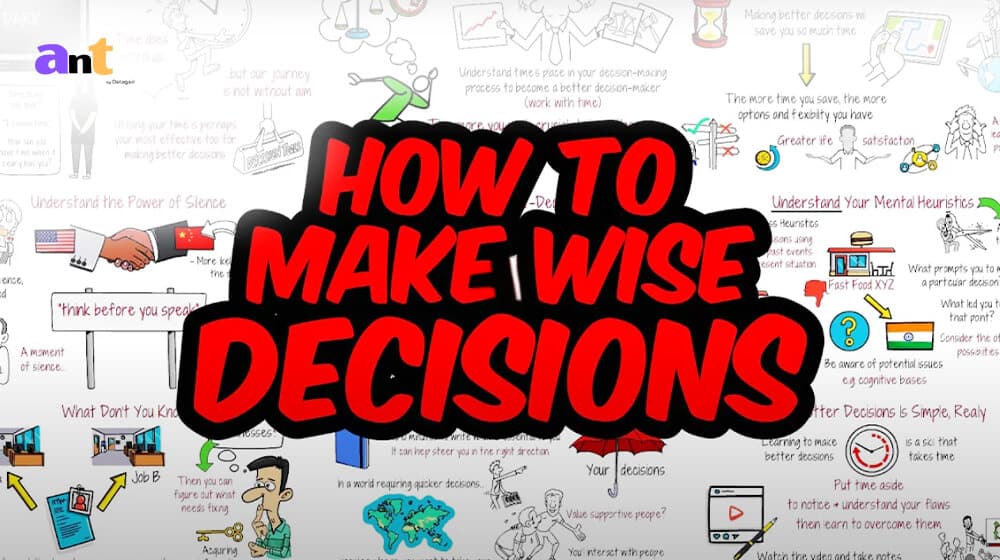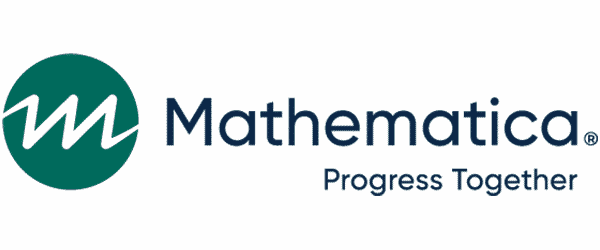
Home » Transcript Library » How to Improve Your Decision Making Transcript
How to Improve Your Decision Making Transcript
Narrator 00:00:00
To explain how to make better decisions, let us first look at Dark, a German time-travel science fiction drama on Netflix. The show dips in and out of multiple timelines, showing characters interact with different versions of themselves and their loved ones. The characters are constantly making decisions with massive consequences in the present day and in all other timelines. There’s one quote that stands out the most. One of the main characters, Jonas, is speaking to Marta: “Why do we say that?” “To have time.” “How can you have time when it clearly has you?” Time does control us—we’re simply along for the ride. But that doesn’t mean our journey is without aim. When making better decisions, utilizing your time is perhaps your most effective tool.
00:00:44
Think of a time when you made a decision you regretted. Chances are, that decision was rushed. The more you rush crucial choices, the more likely you are to make a potentially costly error. The cruel reality is once you’ve made the rash decision, you’ll have all the time in the world to think about what you could’ve done differently. However, it doesn’t need to be all doom and gloom. Understanding time’s place in your decision-making process is vital to becoming a better decision-maker. As seen in Dark, the time we have may not be as clear-cut as you might think, so working with it is the only option.
00:01:19
Other Benefits of Good Decision Makers: As we’re using a time motif to become better decision makers, let’s start with the obvious. Making better decisions will save you so much time. On a smaller, less consequential scale, say you decide to ignore a sat-nav and take your own route. Not long after, you realize you’ve gone wrong, and spend an extra 30 minutes finding your way back. It’s little bits and bobs of time that, when wasted, can eat into a day and present ugly feelings of wastefulness and failure. The more time you save, the more options and flexibility you have. Of course, by making a good decision, you may close off other options, but because it’s a suitable path, a valuable opportunity may arise. In a broader sense, being able to make good decisions is a sign you’re learning from past errors, a critical aspect of personal development. Then there are the benefits in your work-life balance, as high job satisfaction levels ultimately lead to greater life satisfaction altogether. That may mean securing a better salary, or perhaps being regarded as a leader. Leaders, after all, must be decisive decision makers.
00:02:25
Understand the Power of Silence: Moments of silence, particularly in the Western world, are feared. You’ll find that people—strangers, even—will overshare information about their lives just to fill the space. That’s the first error when trying to become a better decision-maker. Take Chinese negotiators, for example. When negotiating with Americans, research has found that the Chinese were more comfortable sitting in silence, making it more likely for them to secure the deal they wanted. It’s a good lesson, as silence can be your best friend when used correctly. There’s a reason the phrase “think before you speak” is so widely used. Often, a moment of silence can feel awkward, not least because someone will likely say that and make it so. When, in fact, a moment of silence is a moment to think. When you give yourself a chance to think, the resulting decision is more likely to be better for you.
00:03:22
Give Yourself Some Post-Decision Space: Of course, there will be plenty of times when you need to make a snap decision. You won’t have time at that moment, but your work toward your quest for better decisions will serve you. Becoming a good decision maker is all about learning from your mistakes. That will never happen if you don’t allocate time to reflect on them. Thinking about bad decisions you’ve made would be understandable if you dwelled on past errors and were too self-critical. However, that’s not what concentrated periods of self-reflection are for. Understanding why you made a decision and where it leads will help you evaluate why some decisions proved more beneficial than others. One of the top ways to do this is via talking to someone who firstly has high emotional intelligence and, secondly, understands you. Usually, verbalizing your thoughts can be a breakthrough for decision-making and subsequent personal development.
00:04:16
Understand Your Mental Heuristics: Put simply, a mental heuristic is a shortcut used to solve problems quickly and effectively. For example, investors and financial professionals use a heuristic approach to quicken investment decisions and analysis. For example, representativeness heuristics are when you make decisions using your knowledge of past events that apply to a present situation. Investopedia provides a useful model: “Fast food ABC expanded its operations to India and its stock price soared. An analyst noted that India is a profitable venture for all fast-food chains. Therefore, when Fast Food XYZ announced its plan to explore the Indian market the following year, the analyst wasted no time in giving XYZ a buy recommendation.” However, the website goes on to highlight the potential issues with this: “Although this shortcut approach saved reviewing data for both companies, it may not have been the best decision. Fast Food XYZ may have food that is not appealing to Indian consumers, which research would have revealed.” Unfortunately, this can lead to cognitive biases. For example, reading about selfish behavior may make it easier to find selfishness in the people around you, perhaps to a fault. This is why it’s essential to understand which heuristics to use. It starts when you think about what prompts you to make a particular decision. What led you to that point? Taking a step back and considering the other possibilities and analyzing why it is you didn’t go for them can help you see those trigger points later down the line.
00:05:52
What Don’t You Know? Let’s put one thing straight: you don’t know what you don’t know. So how can you ever know you’re making the best decision possible if you don’t know your weaknesses? By figuring out what you don’t know, you can only figure out what needs fixing. Let’s use an example. One of the typical ‘big’ decisions you’ll have to make multiple times in your life is job hunting. Say you have two options, but you don’t know what your long-term career prospects are like at either company. Finding that out will give you the information you need and put you in pole position to make a better decision. Or, on a more personal note, if someone comes to you for advice on their life and you don’t know all the facts about the situation, acquiring that information is likely the key to deciding what kind of advice to give.
00:06:39
Know Your Values: Ultimately, your values are the umbrella all your decisions fall under. By knowing them, you can align your decisions accordingly. As we live in a world requiring quicker decisions, knowing the direction you want to take your thoughts and decisions is a useful tool. For example, if you value supportive people, the type of person you interact with and become friends with will align with that. After all, you don’t want to waste time with people who don’t provide you with what you need. You can start with a simple brainstorming session. Take 10 minutes to get a journal out and note down what you feel is essential to you. This works in the short and long term, as you can influence your subconscious when you make your values known. Or, if you’re specifically preparing for a decision, brainstorming, your values can help steer you in the right direction.
00:07:26
Making Better Decisions Is Simple, Really: Of course, learning to make better decisions doesn’t happen instantly. It’s a skill that takes time, as we discussed at the start. All of these tips have that in common. Sure, you can watch this video and note them, but they’re useless without proper time to work. As you learned at the start of this video, learning to cooperate with time will be the most valuable skill you can acquire. At the end of the day, if you ensure you’re putting time aside to notice and understand your flaws, then learning to overcome them will be the next inevitable step. After all, time won’t wait for you, so it’s time to become its ally.
00:08:03
Would you like the full illustration from this video? Click here and I’ll send it right over!
00:08:07
If you are already subscribed to my free Art of Improvement email newsletter, then there’s a copy of it already waiting in your inbox.
00:08:15
Thank you for watching and have an awesome week!
Copyright Disclaimer
Under Title 17 U.S.C. Section 107, allowance is made for “fair use” for purposes such as criticism, comment, news reporting, teaching, scholarship, and research. Fair use is permitted by copyright statute that might otherwise be infringing.






